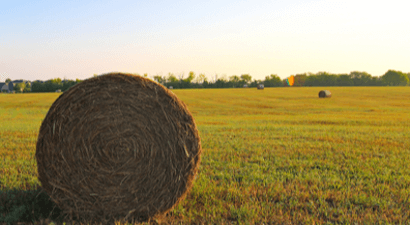Writing the Wrongs of the Past of The Upgrading of Land Tenure Act
On 25 February 2020, the Department of Rural Development and Land Reform published the Upgrading of Land Tenure Amendment Bill (“the Bill”) for public comment. The Bill was set to be tabled in parliament during the first quarter of 2020. The Bill seeks to amend two provisions of the Upgrading of Land Tenure Rights Act 112 of 1991 (“the Act”) by providing for a constitutionally permissible procedure for the determination of rights of ownership and occupation of land, to remedy the constitutional invalidity of the sections. The Act in its current form discriminates against women in respect of conversion of the land tenure rights into ownership. The Bill will also be applicable to the entire Republic, as the previous Act did not apply to independent states.
What is a land tenure?
Land reform comprises of three elements namely land restitution, land redistribution and land tenure. Land tenure reform relates to the securing and protection of customary and informal land rights that were left vulnerable due to previous land policies. The aforementioned Act and Bill seek to secure and officially recognise land rights held by those living on customary and informal land, and to transfer power over those rights to the land rights holders.
The aim of the Bill:
According to the explanatory summary, the Bill aims to amend at the Act, as to:
- Provide the application for conversion and land tenure rights to ownership;
- Provide for an opportunity for interested persons to object to conversion of land tenure rights into ownership;
- Provide for the institution of inquiries to assist in the determination of land tenure rights;
- Provide for the recognition of conversions that took effect in good faith in the past.
Amendments to be made:
Section 1 of the Bill seeks to amend section 2(1) of the Act. The amendment is a result of Rahube v Rahube and Others,[1]where the applicant successfully challenged the constitutionality of section 2(1) of the Act in the Pretoria High Court, which was confirmed by the Constitutional Court. The applicant was evicted from her home by her brother, the first respondent, where she had lived since the 1970s. The grandmother was the ‘owner’ of the property until she passed away in 1978. There is no documentary proof of her ownership. In 1987, the first respondent was nominated by the family to be the holder of a certificate of occupation and was later issued a deed of grant. The deed of grant was issued in terms of Proclamation R293, promulgated in terms of the Native Administrations Act, which only made provision for men to be heads of the family. The Upgrading of Land Tenures Rights Act automatically converted rights in property, as deed of grants to ownership rights. This meant that only men could benefit from the upgrading of tenure rights to ownership.
Section 2(1) was declared constitutionally invalid insofar as it automatically converted any deed of grant or any right of leasehold into holders of ownership which was in violation of women’s rights in terms of section 9(1) of the Constitution. Section 9(1) prohibits unfair discrimination of any persons. Section(1)(a) of the Bill now states that:
“any person who is, the registered holder of a land tenure right according to the register of land rights in which that land tenure right was registered in terms of the provisions of any law or could have been a holder of that land tenure right could not as a result of laws or practices that unfairly discriminated against such person, may apply, as prescribed, for the conversion of such land tenure right into ownership.”
Section 1(a) and (c) stipulate that the conversion of the ownership of land applies to land that is in a formalized township as well as land which has been surveyed but does not form part of a township.
The Bill further states that on receipt of the application, the Minister shall publish a notice in the Government Gazette, which will inform family members, putative holders and other interested parties of the application for conversion. This gives them an opportunity to object to the application. If an objection arises, the Minister is obligated to institute an inquiry and decide on the matter relating to the conversion of land tenure rights.
Section 2 of the Bill amending section 4 of the Act states that a person who is the holder of a land tenure right or could have been the holder but for the laws or practices that unfairly discriminated against such person, shall be granted all the powers as if they are the owner of the erf or land in respect of which the land tenure is granted in a formalized township for which a township register has not yet been opened.
The Bill inserts section 14A into the Act which will appear after section 14. The section makes provision for any person aggrieved by the conversion of a land tenure right from 27 April 1994 to approach a court for an order that sets aside the offending land tenure right, or for an order that is just and equitable. Section 14A(2) states that any of the following transfers of ownership of property from the abovementioned date in which a land tenure right had been converted shall remain valid:
- Property purchased by third parties in good faith;
- Property inherited by a third party in good faith and the estate has been finalized;
- Property which has been converted to ownership in favour of a woman in good faith in terms of the Act.
In Rahube v Rahube and Others the court stated that “Laws and policies must seek to do more than merely regulate formalistically. The Legislature is enjoined to ensure that laws and policies promote the participation of women in social, economic and political spheres while also advancing the spirit, purport and objects of the Constitution.”[2] The Bill is a step in the right direction to secure land tenure rights to women previously marginalised by discriminatory policies.
[1] [2018] ZACC 42.
[2] Para 2.





